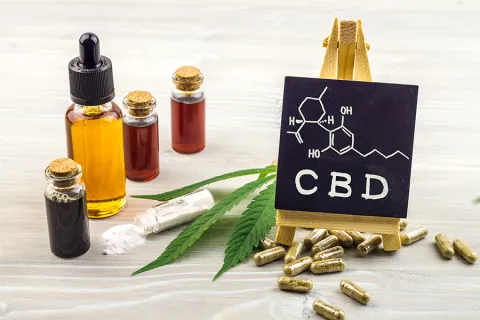The Benefits of CBD: Fact or Fiction?

Are there benefits to CBD or cannabidiol products? CBD hasn't only been used for recreation, and many believe that these oils, gummies and topicals may serve as natural remedies for pain, inflammation, anxiety, acne, and more.
Additionally, some have confidence that CBD products may help those who suffer from autism or other neurobehavioral disorders, such as easing hypersensitivities to light and sound.
CBD is one of many chemical compounds found in the cannabis plant. It is typically derived from the hemp plant, and in its pure form, does not produce psychoactive effects. CBD is widely available in various forms, including topicals, fabrics, foods and beverages.
Side Effects of CBD
Consumers should be aware of possible side effects and risks associated with CBD use:
- Liver damage
- Interference with other medications, which may lead to injury or serious side effects
- Drowsiness or sleepiness
- Diarrhea or changes in appetite
- Changes in mood, such as irritability
Potential Harms
The only FDA-approved CBD medication is one that is used to treat rare seizure disorders. Other CBD products are not FDA-approved, meaning there are no federal standards for their content, purity, or potency.
While CBD is widely available and often marketed as safe, it’s important for consumers to understand several potential harms:
- Many health claims about CBD lack strong scientific evidence.
- Manufacturing processes may introduce harmful contaminants, including psychoactive delta-9-tetrahydrocannabinol (delta-9 THC), which can cause unintended intoxication — especially risky for children. THC is the ingredient in marijuana that causes the "high" feeling after use.
- Possible reproductive and developmental effects
- Unclear or misleading labeling can result in:
- Threats to employment (due to drug testing)
- Inaccurate medical test results
- Unintended drug interactions
More clinical research is needed to determine the safety and effectiveness of CBD products for the conditions they are marketed to treat.
Always consult a health care professional before using CBD, especially if you are taking other medications or have underlying health conditions.
Note: The content of this blog is for informational purposes only. It is not intended for use as diagnosis or treatment of a health problem or as a substitute for the professional consultation of a physician or qualified health care provider. If you have specific questions or concerns regarding a health or medical condition, contact your physician or a licensed health care professional.

